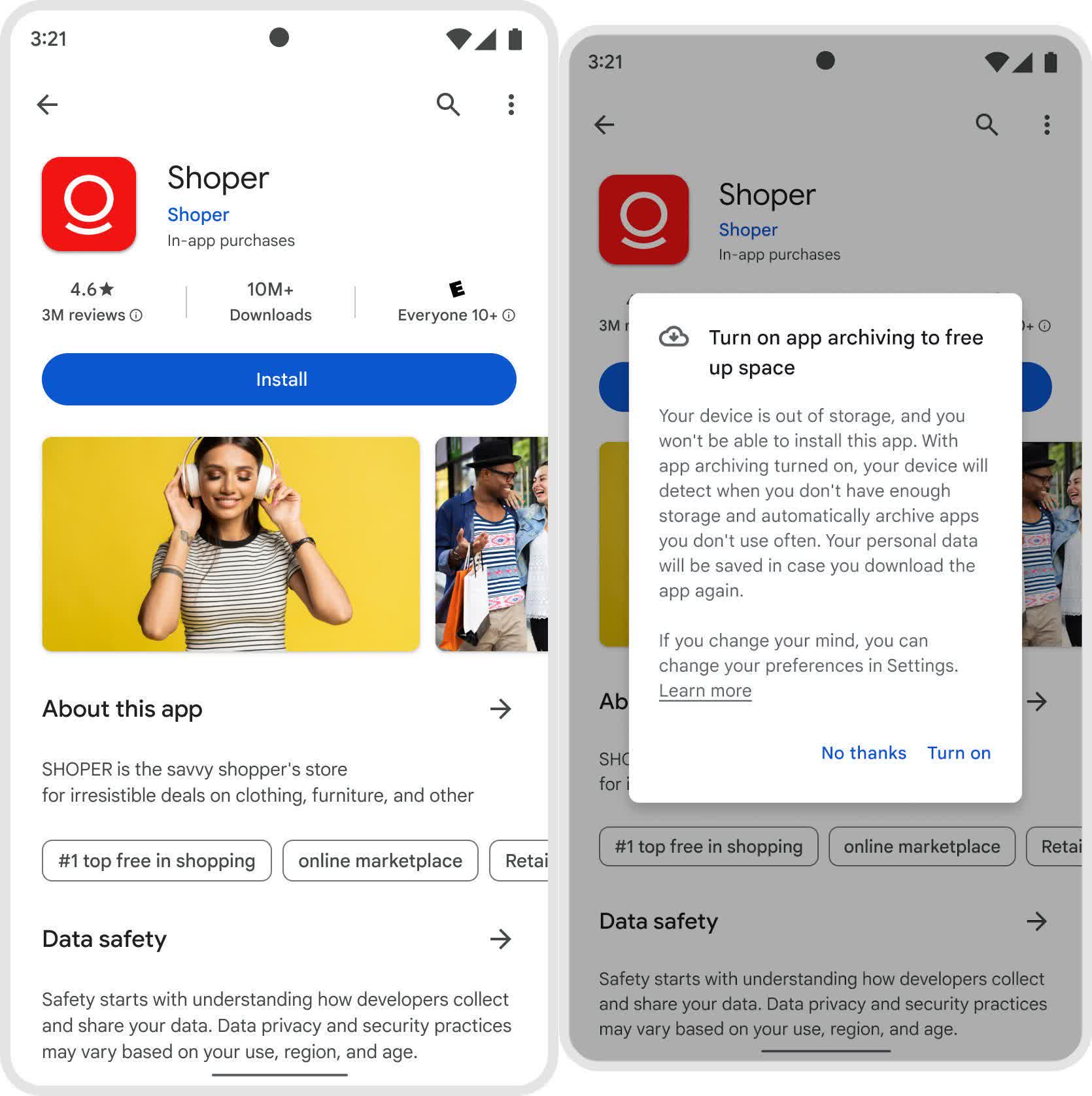Why it matters: Android users have had the option of archiving unused apps since last year to save storage space without deleting their documents and data. Now they can turn on a feature that automates the process. The functionality is similar to iOS' offloading feature.
Google has introduced a new feature that automatically cleans up less frequently used apps when storage space runs low on Android devices. The company says the most common reason users uninstall apps is to make room for new ones, and the new feature lets them do so without losing saved data you may wish to keep for later.
When users install a new app on a device low on storage, they'll have the chance to free up space by partially uninstalling rarely used apps. The feature won't activate until users opt in, so they shouldn't worry about accidentally losing apps.
Archiving an app uninstalls the software while retaining information like game progress, documents, and user accounts. Reinstalling an archived app is quicker than retrieving a fully uninstalled one. While archiving doesn't free up as much space as totally wiping apps, it can still reduce occupied storage by over half.

However, the usefulness of archiving will depend on how fast developers adopt it. The feature is only available when developers publish apps using Google's App Bundle, which the company introduced last year. The functionality involves a new kind of APK file – archived APKs.
Users received the ability to archive apps manually late last year, but Google's latest update simplifies the process and likely makes more users aware of it. Apple introduced a similar feature called "app offloading" back in 2017 with iOS 11.
Android app archiving is another step toward giving users more control over how much data they want to keep or erase. Earlier this month, the company announced that apps allowing in-app account creation must offer in-app account deletion starting next year.
Developers must also provide explicit details on what data they keep and what users can delete. The policy change means less user information is vulnerable to data breaches. Apple made a similar move last year, so users of both mobile platforms now have more robust data control options.